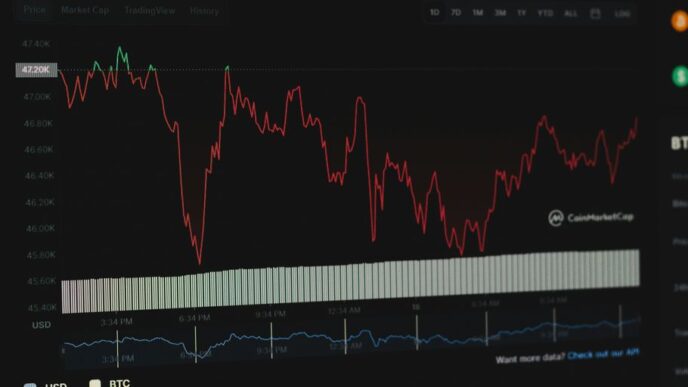You might have heard that blockchain is virtually unhackable, as it uses state-of-the-art technology for protecting your (and everyone else’s) crypto funds.
Many cryptocurrency wallets are also blockchain-based, and their developers often market them as impenetrable, meaning users don’t have to worry about the security of their cryptocurrencies.
In theory, that’s true, but is that so in practice? It’s also true, as long as you choose a good multi crypto wallet that has a clean history.
If you’re not sure about the security, please read our short guide carefully, as we want to explain how blockchain-based wallets work and what makes them so secure.
How Blockchain Makes Crypto Wallets Safe
Before we explain how a decentralized network works, we need to take a look at how do centralized organization looks like. Since Facebook was accused of a data leak, we’ll use it as a standard example of centralization.
When you open a Facebook account, you need to enter your email and password. Where do you think that password is stored? Since it’s a centralized network we’re talking about, your password is stored on Facebook’s server. Nobody has the right to use your registration parameters on Facebook, but cyber attackers still have several workarounds.
If you forget your Facebook password, you can request to change it using your e-mail — but is your email password safe? This is a vicious cycle. However safe and secure, many centralized online services still struggle with serious breaches.
Let’s focus on how this works if a service (in our case, a crypto wallet) is powered by blockchain.
As you probably know, blockchain is a decentralized technology, meaning there are no central organizations storing information about your crypto savings. Instead, they are located “on the chain.”
Once you create a crypto wallet, you’ll receive something called a private key. This is essentially your password.
However, your head is the only place where this password is stored. So you need to write it down and remember it well. If you forget it or lose it, you’ll not be able to restore it in any way — that’s the only password that can help you gain access to your crypto funds.
Therefore, the main advantage is that nobody else but you can have access to your private key. That, however, is also the main disadvantage.
Human Error Is the Main Reason for Crypto Wallet Theft
Even though crypto wallets are marketed as impenetrable, there are still pieces of news circling the web about how this or that crypto wallet owner got robbed. If hacking into a crypto wallet is theoretically impossible, how come that something like that happened many times now.
The answer is — human error. Namely, many crypto wallet owners willingly or unwillingly give out their private keys, which are then used to steal all of the cryptos stored in there.
So, how can anyone lure you into giving your private keys? Well, there are several methods.
The most popular is offering a scam site and asking for that type of information. Many crypto owners became part of such a fraud, giving their private keys upon request on these scam sites.
For example, one of the most common scams in the past was creating a fake ICOs and fake exchanges where many people didn’t even have to leave their private keys. There, people were willingly spending their bitcoins, falsely believing that they will buy or exchange tokens.
In this case, the only rule you need to remember is never to give your private key to anyone. If you stumble upon a site that asks for the private key, please regard it as a scam and stay away from it.
Hardware Wallet Scams
Hardware wallets are overall regarded as more secure than software wallets. To access your funds, one has to know your private key and needs to own your wallet. However, some reports show that hardware wallets can be reconfigured before they are sold, which then allows hackers to penetrate them and steal your cryptocurrencies.
Alternatively, someone who knows your private key can simply steal your hardware wallet from you, so please be on the lookout.
Do All Wallets Use Private Keys?
Here’s a thing you need to remember — not all wallets use private keys for security. There are plenty of so-called exchange wallets, which not only let you store your cryptocurrencies but offer you an exchange service too.
These are not traditional blockchain-based wallets, which means they cannot provide you with the extra safety their blockchain counterparts can. They are still essentially centralized products and may be subject to attacks.
That said, there are plenty of online wallets that have a clean history, as no cyber attacks managed to penetrate their security. After all, we shouldn’t forget that even centralized services have a wide array of security protocols to ensure their users’ safety and protection. If that weren’t the case, hackers would be able to hack entire banks as easily as walking through their front door.
Final Thoughts
To sum up, it’s safe to say that cryptocurrency wallets are pretty safe to use, as long as you know how they work and don’t make the “human error” of giving out your private key. Therefore, feel free to select a wallet that you like and start storing your digital wealth on them safely and soundly.
On the other hand, even if you opt for a wallet that’s not blockchain-based, there’s no need to worry if the wallet uses all the required security protocols to stand in the way of cyberattacks.
The most important thing is to keep learning about wallets, their security, and all related topics. This will help you understand the matter a bit better and not fall for cheap tricks that may result in losing your entire crypto fortune.












